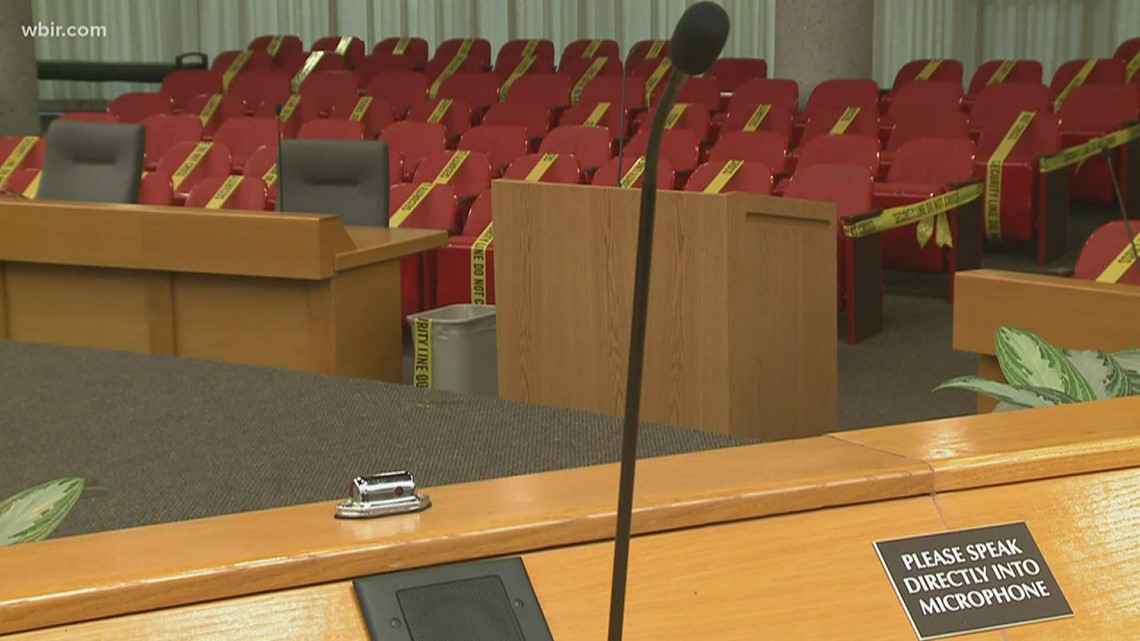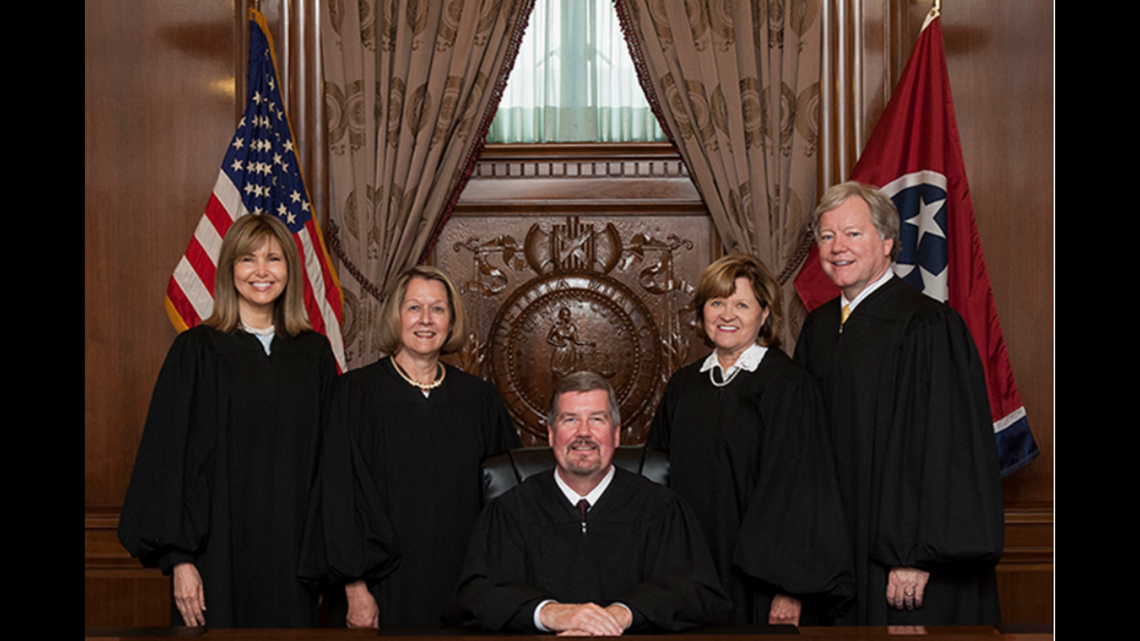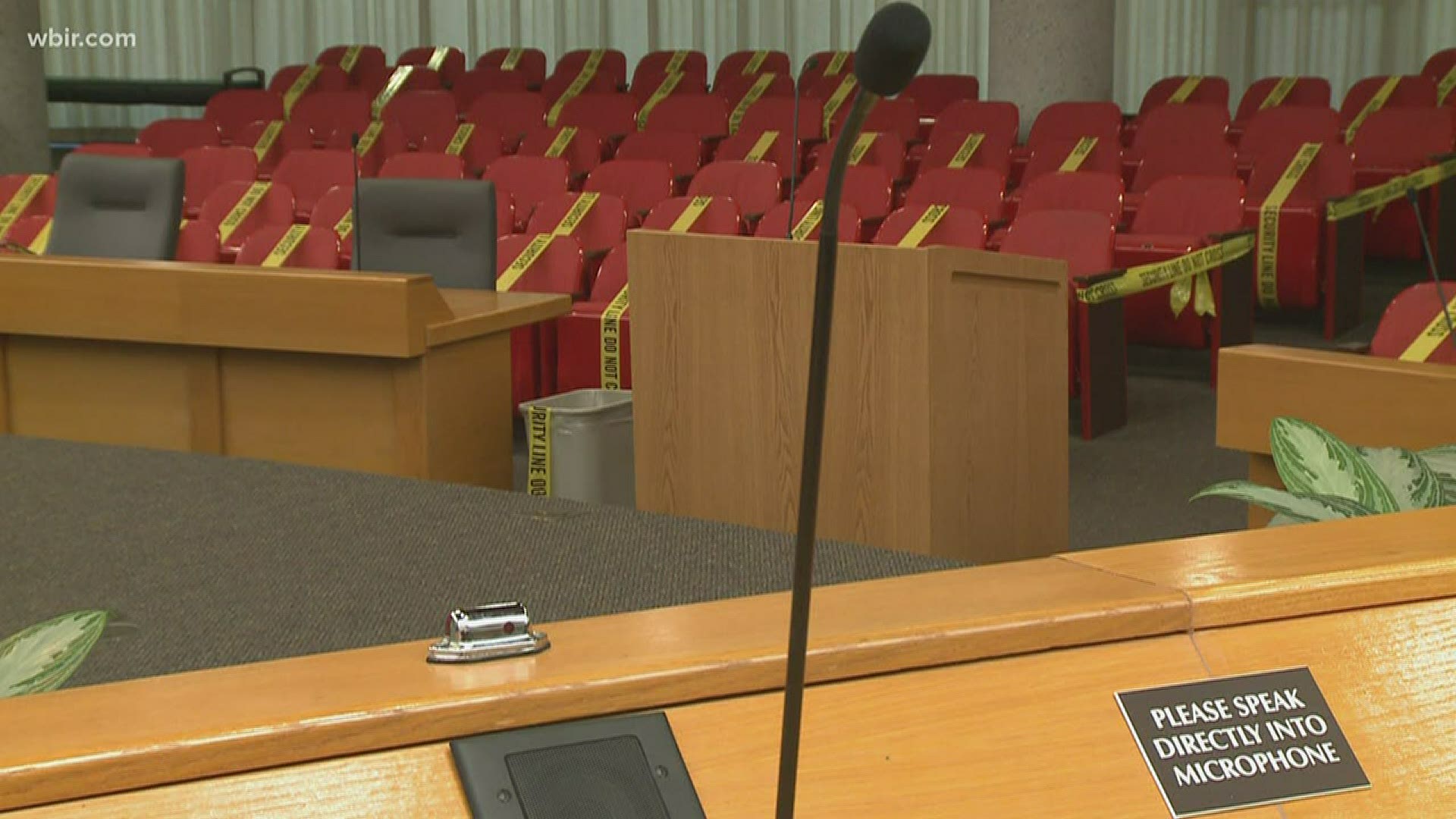KNOXVILLE, Tennessee — As they slowly start reopening, most Tennessee courtrooms aren't planning or even thinking about how to include members of the public or the TV stations and newspapers that represent them, a review shows.
The Tennessee Coalition for Open Government looked at 26 plans submitted by judicial districts across the state to the Tennessee Supreme Court. Some districts hadn't yet filed a plan.
Seven of the 26 plans include a method for members of the media to attend in-person or electronic proceedings. Even fewer have provisions that would allow general members of the public who are not participants in a case to view proceedings.
The high court last month signaled it would approve local plans to help courts open back up amid coronavirus concerns. While courts have continued to operate since March, in-person hearings have been sharply reduced.
As a result, many courts have seen significant backlogs. In Knox County General Sessions Court, for example, at least 8,000 cases have been reset for April and May.
While trials are still on hold and local courts are being told to try as much as possible to use video conferencing for business, the state Supreme Court has been approving plans by judicial districts in recent weeks to resume some functions.
TCOG's review, however, shows those plans generally only take into account a defendant or plaintiff, lawyers, witnesses and court personnel. Court capacities are being limited to 10 people to avoid potential exposure to COVID-19.


TCOG works statewide to promote public access to government in Tennessee. Its members include lawyers, journalists from newspapers like the News Sentinel and TV stations such as WBIR as well as civic groups and citizens.
Recognizing the current state of the virus crisis, the organization this month is advocating for the state Supreme Court to permit public and media access.
Some journalists have appealed directly for help to the Administrative Office of the Courts in Nashville -- with little luck.
"So far, most plans bar members of the general public — and presumably the news media — from in-person proceedings and offer almost no guidance on how the courts might provide access to proceedings through either live-streaming, broadcasting or audio or video recordings," TCOG states in its analysis.
"Some plans say crime victims will be allowed to attend in-person proceedings, but others make no specific provisions for victims. Several plans limit the number of friends and family a defendant can have with them in court."
A CLOSER LOOK
Knox County consists of the 6th Judicial District. It covers criminal and civil courts.


State Supreme Court Justice Jeff Bivins has blessed its reopening plan, which calls for safety measures such as requiring anyone going into a courtroom to wear a mask, answer questions about their health and have their temperature taken.
It does not address media or general public access.
Courts in the City County Building downtown began reopening Monday to in-person hearings.
Under the plan, up to 10 people can be in a courtroom with the judge. Witnesses generally have to wait outside until called.
Amid the virus crisis, WBIR has sat in on some Criminal Court proceedings with the judge's permission.
This week General Sessions Court judges said the media is welcome to come into court so long as the 10-person limit isn't exceeded.
The 10-person limit means some victims' or defendants' families are potentially barred, along with the general public and members of the media interested in watching court proceedings.
The plan also doesn't address electronic access by the general public to proceedings.
TCOG found in its statewide review that only one approved plan, for Hamilton County Criminal Court, referenced any accommodation to stream proceedings that are either conducted electronically or in-person:
“Members of the public and media may attend video conference proceedings as a room ‘participant.’ The Court may ‘mute’ the microphone of any person, including media representatives, who are not parties to the immediate proceeding. Media may also attend any in-person proceeding upon approval by the Criminal Court consistent with Tennessee Supreme Court Rule 30.”
But no information about streaming or how to access it is evident on the court’s website. A March 18 plan by the Hamilton County Criminal Court, which is on the court’s website, instructs members of the media to contact Barbara Peck with the Administrative Office of the Courts in Nashville to ask permission to attend an in-person proceeding.
Two districts, the 24th Judicial District, consisting of Benton, Carroll, Decatur, Hardin and Henry counties, and the 26th Judicial District, consisting of Chester, Henderson and Madison counties, said they would set aside space for the media, TCOG found.
"The plans offer a first-time look at how hundreds of courts in Tennessee — from chancery courts to general sessions and municipal courts — are struggling with resuming more business in what is often a center of teeming public activity: local courthouses and government buildings," TCOG's analysis states.
Under current orders, trials will resume no sooner than July.

